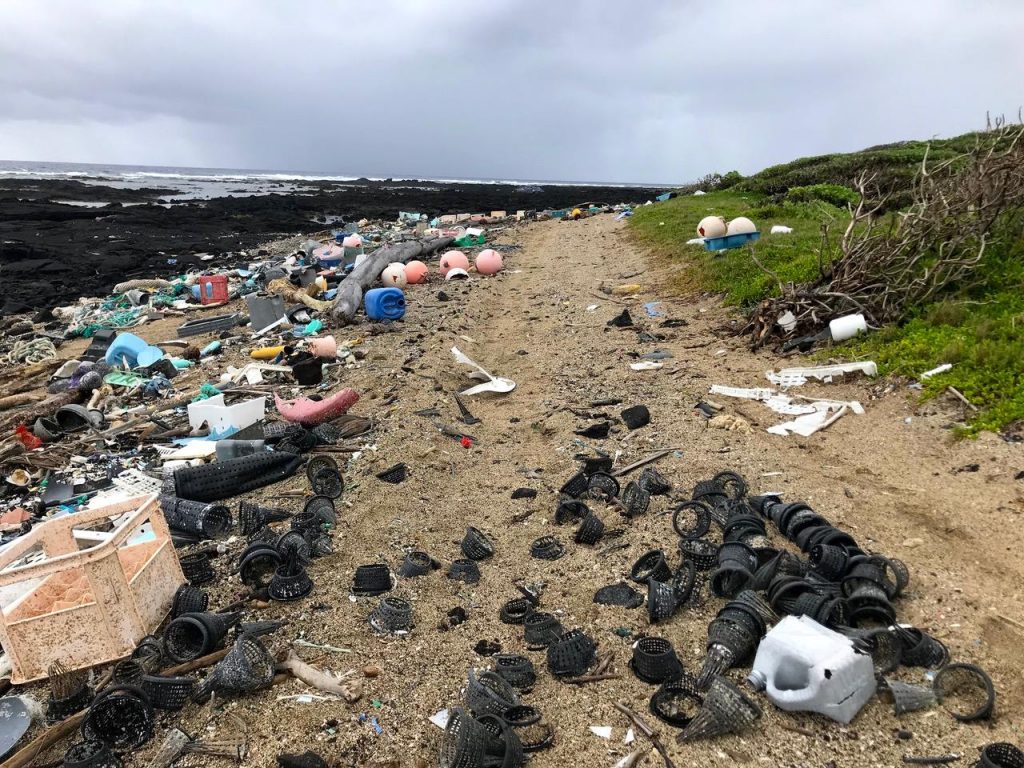 Plastic foodware containers will be replaced with compostable, biodegradable options. (File photo: Kelsey Walling)
Plastic foodware containers will be replaced with compostable, biodegradable options. (File photo: Kelsey Walling)
A bill to prohibit the sale and distribution of most single-use plastic and polystyrene items to hold food is closer to becoming law in Hawaiʻi County.
The County Council passed the first reading of Bill 83, which aims to reduce disposable plastic and polystyrene and was introduced by Councilwomen Rebecca Villegas and Michelle Galimba.
The bill covers items that hold, store or contain food or drinks, and serviceware, which is used by food providers, county facility users or organizations.
Any entity selling, distributing, or providing prepared food to the public must use reusable foodware and serviceware, or disposable options that are certified by the Compost Manufacturing Alliance or visibly labeled as compostable with a BPI-certification mark.
The bill’s supporters say it would help Hawaiʻi County meet goals set forth by the county’s Zero Waste Plan and the state’s Aloha+ Challenge Solid Waste Reduction Goals.
ARTICLE CONTINUES BELOW ADARTICLE CONTINUES BELOW AD
In 2007, the Hawaiʻi County Council joined numerous states, counties, cities and countries in passing legislation to reduce the county’s ecological footprint and divert resources from landfills toward recovery.
Testifiers from the West Hawaiʻi Explorations Academy spoke to the council members about the importance of passing the bill, with many of the young people expressing concern about their futures.
 Plastic pollution at Kamilo Point, Big Island. Photo credit: Sarah-Jeanne Royer.
Plastic pollution at Kamilo Point, Big Island. Photo credit: Sarah-Jeanne Royer.
“I’m the next generation, and it is our kuleana to save the Earth,” said Lexy, a 12-year-old student. “Pictures of the beach in the past look so different than now, and I’m scared to see what it will look like when I’m older.”
Thirteen-year-old Nani added: “Plastic pollution is affecting animals and our bodies. When we went to the beach as a class, we collected over 850 pieces of plastic. Restaurants need to be using containers that say biodegradable and compostable.”
An opponent of the bill, Stephen Ueda, president of Suisan Company, mentioned that the county lacks the infrastructure to implement composting, and the cost of biodegradable, compostable foodware and serviceware may impact small businesses.
ARTICLE CONTINUES BELOW AD
“Our survey of Hawaiʻi Island foodservice businesses shows that many already use some compostable or recyclable containers,” Ueda said. “However, most do not support Bill 83 because they do not believe it will lead to real environmental improvements without the necessary processing infrastructure.”
He said many small business are concerned that compostable containers cost more, which adds to their rising operating expenses.
However, Justin Canelas, operations director of Recycle Hawaiʻi, said he also is a restaurant owner and implemented the BPI certified containers.
“They cost about 25 cents more,” he said. “However, in the grand scheme of an operating budget, it is not a cost that breaks business. Economically, the more that they are used, the cheaper they become. We have already seen that trend in the last few years.”
According to Kristine Kubat, executive director of Recycle Hawaiʻi, the organization has received grants to help businesses transition to compostable containers. If a business has an estimate for the price of plastic and an estimate for the price of compostables, they have been able to pay the cost differential.
ARTICLE CONTINUES BELOW AD
As for implementing composting facilities, Canelas spoke about the positives of in-vessel composting, which are smaller units that compost organic waste and quickly turn it into soil. Some units scale up to handle 6,000 pounds of waste a day at a cost of about $300,000 per unit.
“If we deployed five of those units, the county could compost 11 million pounds of food waste per year. Think of the landfill space that would save,” Canelas said. “It is very safe to use. It keeps rats and pests out, and then the soil can be given to the community to grow food.”
While there was some discussion regarding labeling requirements, lack of composting infrastructure, and potential effects on small businesses, the County Council ultimately voted to pass the bill without amendments.
The Department of Environmental Management has until Nov. 29 to submit comments regarding the bill. The second and final reading is set for the next County Council meeting on Dec. 3.
If the bill passes, which also requires the mayor’s signature, it would take effect one year after its approval.